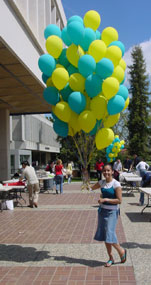Jan and Bud Richter Center
Importance of Service-Learning
Re-establishing the Importance of Learning in Service-Learning

The foremost reason for instituting service-learning is learning; as an integral bonus, students provide service to the community. As a faculty member, your primary concern will likely center on assessing that learning and being certain that the service-learning component of your course is meeting your learning objectives. The most common form of assessment is some method of reflection, often through guided questions or journals.
The beauty of service learning is its inherent engagement and that the assessment of learning can be built directly into the activity itself. Nonetheless, reflection is a critical component to successful service learning and deserves careful consideration in your curriculum design. Effective learning is a three layered cake. The first layer entails the student’s readiness to learn, the second is the effectiveness of the learning experience, and the third centers on the reflection and integration of the learning. It is easy for faculty to focus on the middle layer; we may feel more in control with the experience.
However, responsibility needs to be placed on the student so they are truly ready to gain the most from this experience. More importantly, the integration of learning should be deliberate and focused. Renowned outdoor educator, L.B. Sharp, said that once the answer is given, the learning ceases. In service learning it is tempting to move on to the next task, project or learning objective once the prior one is completed.
In order for true learning to occur it is recommended that one-third of your student reflective time be allocated to previous tasks and assimilating these experiences into new learning. There needs to be research on community political processes after the experience. This may seem counterintuitive but this is where learning actually becomes integrated. As such, keep the three layers in your service learning design and you will foster deeper learning.